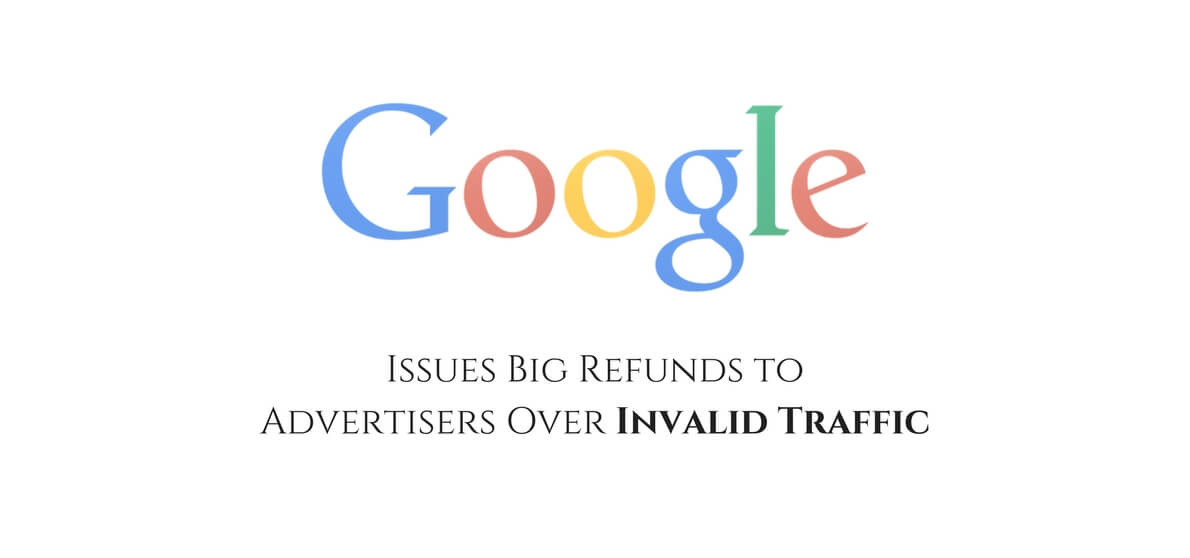Google Issues Big Refunds to Advertisers Over Invalid Traffic
-
 Nidhi Arora
Nidhi Arora
- 8 years

The digital advertising space is totally based on trust. It can work effectively only when all participants are good, and when no one attempts to spoof anyone else. But this trust had been shaken by some fraudulent companies that had been selling ad space on some premium sites for which they didn’t have any access to, or on fake versions of original sites, as per the report by Business Insider. (Source: http://www.businessinsider.in/Googles-been-running-a-secret-test-to-detect-bogus-ads-and-its-findings-should-make-the-industry-nervous/articleshow/59699825.cms)
No need to worry about the nitty-gritty of such ad-fraud companies because Google is in the trust restoring mode. Yes, Google is trying to win back the trust of online marketers by issuing large refunds for their ads that ran on sites with fake traffic. This move by Google has been taken to fight against such ad-fraud. Some of these refunds are as large as “hundreds of thousands of dollars,” – as per a report in the Wall Street Journal. (Source: https://www.wsj.com/articles/google-issuing-refunds-to-advertisers-over-fake-traffic-plans-new-safeguard-1503675395). The refunds are being made for ads purchased via company’s automated technology, referred as DoubleClick Bid Manager.
Google is working on ways to offer marketers more transparency in the digital advertising space, plus automatically rebate clients when Google & their ad partners serve ads placed next to a fake traffic, including the ads that don’t load in the right ways, or ads served to bots in place of people. Google’s Director of Product Management for Advertising Scott Spencer tells WSJ that he thinks the hundreds of technology partners Google works with will be supportive of the effort.
As per a conference call with investors (in the month of April), Google CEO Sundar Pichai said:
“As marketers continue to shift to its programmatic ad buying, our DoubleClick platform makes it easy for them to effectively reach the right audiences. We’ve been focusing on making more inventory available to more advertisers, especially premium inventory.”
Moreover, according to a Google spokesperson – “We can’t comment on specific details of ad fraud but the vast majority is filtered in our systems before our advertisers are ever impacted or charged… In our own platforms, we’re working with our exchange partners to remove monetary incentives for spammers and increase transparency for buyers,”
It seems that they refused to declare any final verdict on the details available in the report of the Wall Street Journal, but committed that the refunds were made for ads placed across their partner websites with invalid traffic produced by bots, or automated software modules that simulated to be valid users.
Download Blog












